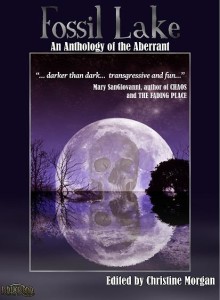Guest Post by Adria Laycraft
Writing is writing … right? All you do is put one word after another on the page. This fact doesn’t change, no matter if you use a pencil scratching paper or fingers tapping at a computer keyboard. It also doesn’t change whether you’re writing fiction or nonfiction.
You’re all rolling your eyes at this over-simplification, aren’t you? We all know there’s so much more to it than that. As any writer can tell you, it’s a simple process, but it is not easy.
So what are the differences between the writing processes of fiction versus non-fiction? If you’re like me, working by day as a copywriter and by night as a storyteller, you probably have some interesting ways to mentally shift gears when moving from one style to the other.
I learned early on that I experience better results bouncing between freelance contracts and fiction projects if I kept them separate in obvious ways, changing not only my mental ‘headspace’ but also my physical setting. I work on tech writing at my desk, in an office chair, on a large screen laptop with a second monitor hooked to it. A true workplace environment. I have an upright posture and a logical mindset.
Then, when it’s time to scribble some fiction, I curl up on the sofa with a little netbook in my lap, a blanket, low lighting, quiet music. I’m reclined, ready to be entertained and taken away to a different place. Sometimes I even revert to pen on paper, somehow connecting even more deeply to the emotional well.
So, different rooms, different computers, different posture even…all results in a different structure of words.
This blog post request got me thinking.
Just what are the main differences between these two types of writing? Why do they require such a dramatic change in setting for me to accomplish them effectively? Instead of differences, however, I started seeing how they are similar.
Most would say one is logical and the other emotional, and while it’s easy to see why that makes sense, I’m not sure I can agree completely. It is just as important to involve the reader emotionally in technical writing. Take for instance a sales letter. If you do not elicit the right emotion from the reader, they aren’t going to buy the product or click through to the website. On the flip side, fiction written without any logic is painful to read because plotting and consistency are lost.
And while writing a sales letter (or any other non-fiction technical piece) requires careful structuring of certain key elements, what novel doesn’t? Each document has goals that are strikingly similar: to inform, inspire, educate, and entertain. A novel has an inciting incident, rising action, a climax, falling action, and a conclusion. A sales letter has a great headline (inciting incident), a list of benefits with testimonials to add credibility (rising action), a reason to act now (climax), and a call to action with a risk-free promise (conclusion).
So maybe the difference lies in the tone and content of each? Yes, that must be it. Fiction is often lyrical, introspective, and dramatic, while technical writing involves more facts and figures, and a more straightforward language with which to present them. Yet both require strident research to achieve the best results. That lyrical prose needs the perfect word choice…and so does the technical paper. Good research is crucial to both, so in this way they are similar once again.
What I’m trying to get at is while fiction and non-fiction may seem to have very different goals, voice, and content, when it comes time to sit and do the work of writing it all looks the same to me–elicit the desired emotion from the reader, create a good structure of all the necessary key elements, and research your subject(s) thoroughly to ensure proper word selection and the best possible content.
That said, I’ll keep writing fiction in the cozy spot in the living room, and completing my copywriting projects at my desk in the office. Somehow it makes a difference.
Adria is an author and freelance editor that once upon a time earned
 Honours in Journalism at SAIT. She co-edited the popular Urban Green Man anthology in 2013, which made the ballot for the Aurora Awards. Look for her stories in Orson Scott Card’s IGMS, the Third Flatiron anthologies Abbreviated Epics and Only Disconnect, FAE and Corvidae anthologies, Tesseracts 16, Neo-opsis, On-Spec, James Gunn’s Ad Astra, and Hypersonic Tales, and a few others. Adria is a grateful member of IFWA (The Imaginative Fiction Writers Association) and a proud survivor of the Odyssey Writers Workshop. She is also a member of the Calgary Association of Freelance Editors (CAFÉ).
Honours in Journalism at SAIT. She co-edited the popular Urban Green Man anthology in 2013, which made the ballot for the Aurora Awards. Look for her stories in Orson Scott Card’s IGMS, the Third Flatiron anthologies Abbreviated Epics and Only Disconnect, FAE and Corvidae anthologies, Tesseracts 16, Neo-opsis, On-Spec, James Gunn’s Ad Astra, and Hypersonic Tales, and a few others. Adria is a grateful member of IFWA (The Imaginative Fiction Writers Association) and a proud survivor of the Odyssey Writers Workshop. She is also a member of the Calgary Association of Freelance Editors (CAFÉ).


 Evan Braun is an author and editor who has been writing books for more than ten years. He is the author of The Watchers Chronicle, whose third volume, The Law of Radiance, was released earlier this year. In addition to specializing in both hard and soft science fiction, he is the managing editor of The Niverville Citizen. He lives in Niverville, Manitoba.
Evan Braun is an author and editor who has been writing books for more than ten years. He is the author of The Watchers Chronicle, whose third volume, The Law of Radiance, was released earlier this year. In addition to specializing in both hard and soft science fiction, he is the managing editor of The Niverville Citizen. He lives in Niverville, Manitoba.